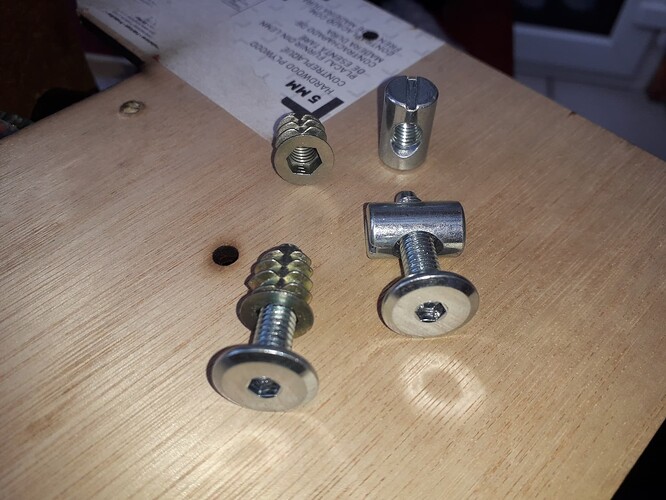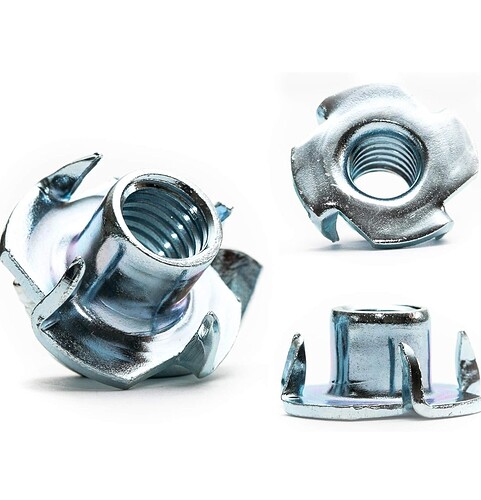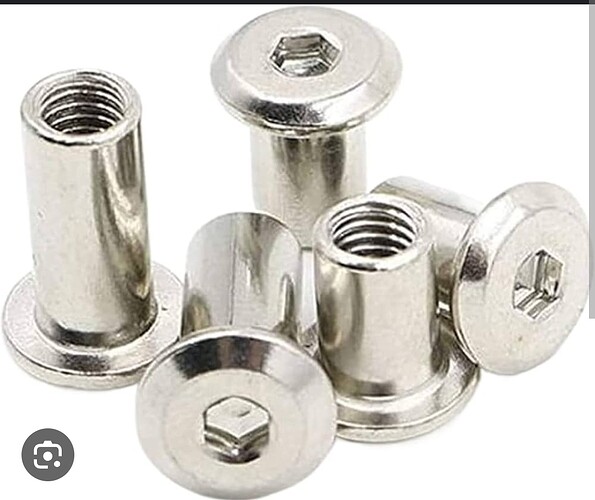Hi,
An informational post for you all
There has been some confusion about different types of fasteners. All these types of fasteners use machine screws which means they can be done and undone as many times as you like without weakening.
-
Threaded inserts (melt-in) - these are the brass inserts which you can melt into a thermoplastic (e.g. 3d printed plastics, or hdpe). They don’t work very well for structural stuff in robots as they can be pulled out with relatively little force, relying on the melty bits of the plastic to hold. Threaded inserts are commonly used on small electrical appliances, if you look at your multimeter, it probably uses them for the battery compartment.
-
Barrel nuts - these are a “barrel” which is inserted perpendicular (see picture). You need to drill a hole at a right angle and insert the barrel nut. The nut usually has a straight channel so it can be turned with a screwdriver into position.
-
Insert nuts aka “furniture nuts” - these are for surface mounting panels and can be inserted from the same side as the bolt, or reverse mounted. They are designed for wood and must be initially screwed in with a hex key / allen key. You need to drill the outer part of the hole a couple of mm bigger than the bolt clearance hole to allow the fixing to go in.
I like reverse-mounting insert nuts as they won’t pull out.
- T-nuts or claw nuts (not pictured because I forgot to include) - these are an internally threaded tube with a plate bent into several “claws”. This grips a soft material. You can install with a hammer or use a vice or clamp to squish them in. They are intended for wood but work well with hdpe too.
These three types can all be bought from local suppliers (I used Screwfix), at least in larger sizes. Pictured are M6.


